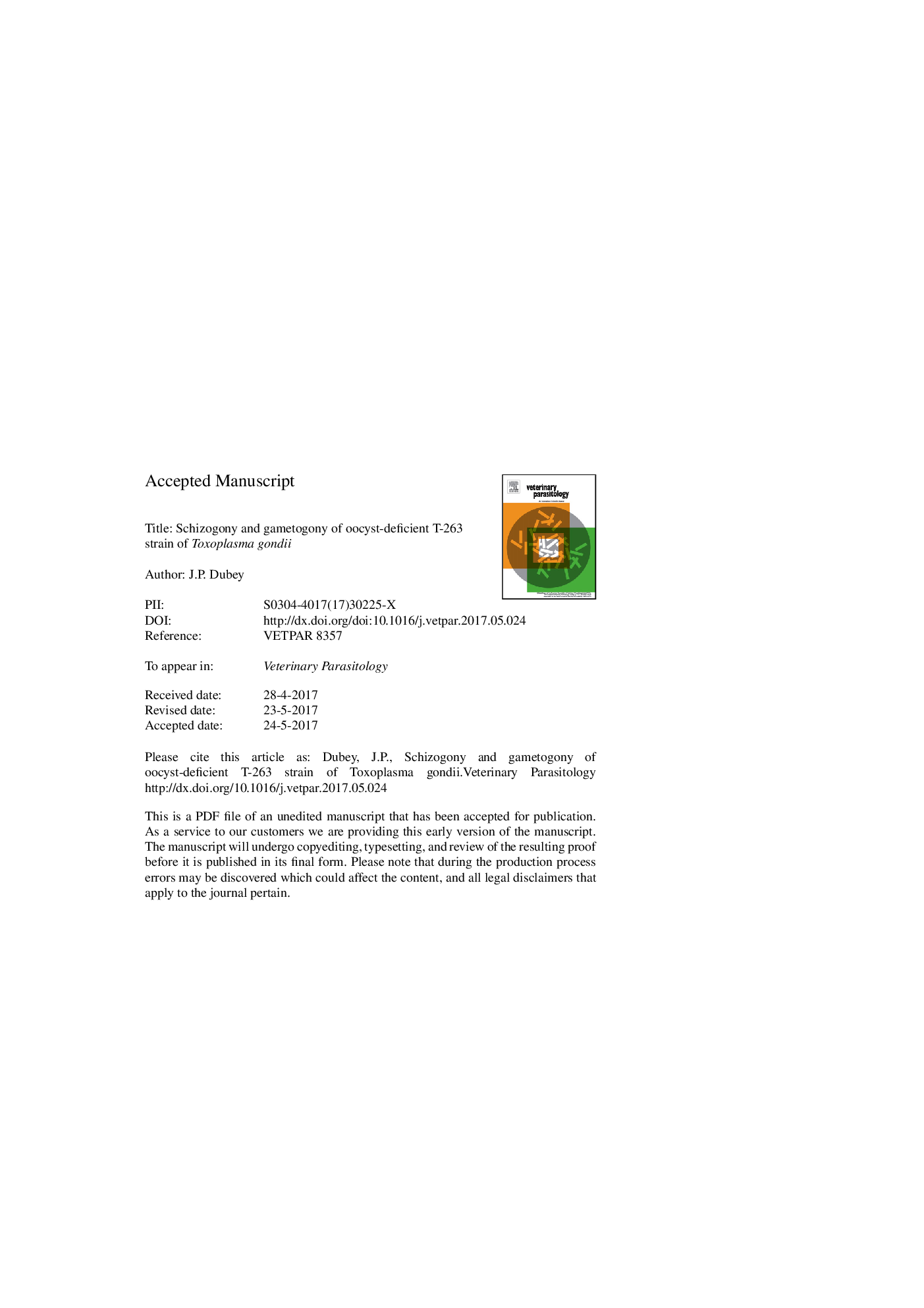| کد مقاله | کد نشریه | سال انتشار | مقاله انگلیسی | نسخه تمام متن |
|---|---|---|---|---|
| 5545691 | 1555631 | 2017 | 11 صفحه PDF | دانلود رایگان |
عنوان انگلیسی مقاله ISI
Schizogony and gametogony of oocyst-deficient T-263 strain of Toxoplasma gondii
دانلود مقاله + سفارش ترجمه
دانلود مقاله ISI انگلیسی
رایگان برای ایرانیان
موضوعات مرتبط
علوم زیستی و بیوفناوری
علوم کشاورزی و بیولوژیک
علوم دامی و جانورشناسی
پیش نمایش صفحه اول مقاله

چکیده انگلیسی
Oocysts are important stage for the spread of Toxoplasma gondii because they are environmentally resistant. Among all hosts of T. gondii, only felids can excrete oocysts. Cats that have excreted T. gondii oocysts after primary infection develop immunity to re-excretion of oocysts, and this immunity appears to be long-lasting. It would be desirable to have a non-infectious vaccine for the prevention of T. gondii infection in cats and to understand mechanism of immunity to excretion of oocysts. An initial step will be to indentify stage/stages of the parasite for induction of immunity. A chemically-induced mutant of T. gondii, T-263, is immunogenic but lacks the capacity to form oocysts in cats. Cats fed live bradyzoites of T-263 do not excrete oocysts after challenge with oocyst producing strains. However, it is not known at what stage of the parasite development the oocyst formation is halted. Here, four cats were fed live tissue cysts of the T-263 strain and examined for enteroepithelial stages and oocyst production. Two cats were administered methyl prednisolone aceatate (20Â mg/kg) once intramuscularly and these cats were euthanized 5 and 7Â days post inoculation. No oocysts but immature and mature schizonts (types D and E), male, and female gamonts were detected in two cats euthanized. The remaining two cats did not excrete oocysts examined 3-14Â days post inoculation, but both seroconverted and developed antibody titers of 1:400 tested by the modification agglutination test, indicating exposure to the inocula. The results demonstrate that the T-263 strain is defective in oocyst formation and the observations should help future studies in identification of genes/factors responsible for oocyst formation in the intestine of cats.
ناشر
Database: Elsevier - ScienceDirect (ساینس دایرکت)
Journal: Veterinary Parasitology - Volume 245, 15 October 2017, Pages 160-162
Journal: Veterinary Parasitology - Volume 245, 15 October 2017, Pages 160-162
نویسندگان
J.P. Dubey,